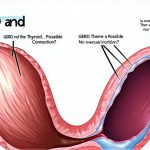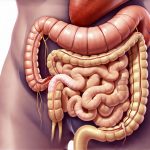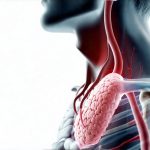The liver, often lauded as the body’s detoxification center, is far more than just a filter. It’s a central metabolic powerhouse intricately involved in nearly every physiological process, playing a surprisingly significant role in hormonal regulation. While we frequently associate hormones with glands like the thyroid or adrenal cortex, the liver acts as both a producer and modulator of hormone activity. Its functions extend beyond simply processing hormones; it directly impacts their synthesis, metabolism, and elimination, influencing everything from reproductive health to stress response and energy levels. A healthy liver is thus crucial for maintaining hormonal balance, and disruptions in liver function can lead to significant hormonal imbalances with wide-ranging consequences.
Understanding this connection isn’t merely about identifying a potential source of imbalance; it’s about recognizing the interconnectedness of bodily systems. Hormonal health doesn’t exist in isolation. It is profoundly influenced by – and influences – digestive function, immune response, and overall metabolic wellbeing. When the liver struggles, hormonal harmony often suffers, leading to symptoms that can be subtle at first but ultimately impact quality of life. This article will explore the multifaceted relationship between the liver and hormones, shedding light on how these two vital systems interact and what happens when their delicate balance is disrupted.
The Liver’s Role in Hormone Metabolism
The liver doesn’t just passively receive hormones; it actively participates in their lifecycle. It’s involved in the activation of some hormones – converting them into their biologically active forms, allowing them to exert their effects on target tissues. Conversely, it also plays a critical role in deactivating hormones, breaking them down for excretion when their job is done or when levels become too high. This intricate process ensures hormonal signals are appropriately timed and dosed. Think of the liver as a hormone traffic controller, directing and regulating flow to maintain order.
One key area where this metabolic action is evident is with steroid hormones – estrogen, progesterone, testosterone, and cortisol. These hormones, after performing their function, travel to the liver for detoxification. This detoxification doesn’t necessarily mean making them ‘toxic’ in the traditional sense; it means converting them into water-soluble forms that can be easily excreted through bile or urine. However, the process isn’t always straightforward. The liver utilizes a series of enzymatic pathways – primarily involving cytochrome P450 enzymes – to accomplish this task. Variations in these enzyme systems, due to genetics, diet, lifestyle factors, or liver health itself, can dramatically impact how efficiently hormones are metabolized.
Furthermore, the liver produces hormone-binding proteins like sex hormone binding globulin (SHBG). SHBG binds to steroid hormones, regulating their availability and activity. Lower levels of SHBG mean more ‘free’ hormone is available, potentially leading to stronger effects; higher levels reduce free hormone levels and weaken their impact. This highlights how even the amount of hormone in circulation isn’t the whole story – it’s about how much is actually accessible to tissues. A compromised liver can struggle to produce sufficient SHBG or properly regulate its function, further contributing to hormonal imbalances.
Estrogen Metabolism and Liver Health
Estrogen metabolism is particularly sensitive to liver health. The liver doesn’t just break down estrogen; it determines which forms of estrogen are produced during detoxification. There are three main metabolites: 2-hydroxyestrone (relatively benign), 4-hydroxyestrone (neutral), and 16α-hydroxyestrone (potentially problematic). An efficient, healthy liver will predominantly produce the safer 2-hydroxyestrone. However, in cases of liver dysfunction – due to factors like chronic alcohol consumption, exposure to environmental toxins, or non-alcoholic fatty liver disease – production can shift towards the 16α-hydroxyestrone metabolite.
This imbalance is significant because 16α-hydroxyestrone has been linked to increased risk of estrogen dominance and associated health concerns. Estrogen dominance isn’t necessarily about having too much estrogen overall; it’s about an imbalance between different estrogen metabolites, potentially leading to symptoms like PMS, fibroids, endometriosis, or even certain types of cancer. Supporting liver function – through diet, lifestyle modifications, and potentially targeted supplements (under the guidance of a healthcare professional) – can help shift estrogen metabolism towards healthier pathways.
- Strategies to support healthy estrogen metabolism include:
- Increasing intake of cruciferous vegetables (broccoli, cauliflower, kale).
- Limiting exposure to xenoestrogens (chemicals that mimic estrogen found in plastics and pesticides).
- Maintaining a healthy weight.
- Ensuring adequate fiber intake for proper detoxification.
Cortisol Regulation and Liver Function
Cortisol, the body’s primary stress hormone, is also heavily influenced by liver function. While cortisol is produced by the adrenal glands, the liver plays a vital role in its metabolism and clearance. Chronic stress can overwhelm the adrenal glands, leading to imbalances. However, even with healthy adrenals, a compromised liver can struggle to effectively process cortisol, resulting in elevated levels over prolonged periods. This sustained high cortisol can have detrimental effects on immune function, sleep quality, weight management, and overall health.
The liver’s ability to convert inactive cortisone (a less potent form of cortisol) into active cortisol is also crucial. A healthy liver ensures appropriate cortisol activation when needed for stress response; however, impaired liver function may disrupt this process, leading to insufficient cortisol levels in times of stress. This creates a complex scenario where both high and low cortisol can be linked to liver dysfunction.
Thyroid Hormone Conversion and Liver Health
Thyroid hormones are essential for regulating metabolism, energy levels, and mood. The thyroid gland produces primarily T4 (thyroxine), an inactive form of the hormone. The liver, along with other tissues, is responsible for converting T4 into its active form, T3 (triiodothyronine). This conversion requires selenium-dependent enzymes, and a healthy liver is crucial for this process to occur efficiently. A struggling liver can impair T4 to T3 conversion, leading to symptoms of hypothyroidism even if thyroid hormone levels appear normal on standard tests.
- Factors that can impact thyroid hormone conversion include:
- Liver inflammation or damage.
- Nutrient deficiencies (selenium, zinc, iron).
- Exposure to toxins.
- Chronic stress.
Addressing liver health can therefore be a key component of supporting healthy thyroid function. Focusing on optimizing liver detoxification pathways and ensuring adequate nutrient intake can improve T4 to T3 conversion and alleviate symptoms associated with suboptimal thyroid hormone levels. It’s important to note that thyroid imbalances are complex and require comprehensive evaluation by a healthcare professional.
The interconnectedness between the liver and hormones is undeniable. Recognizing this connection empowers us to take proactive steps towards supporting both organ systems for overall health and wellbeing. A holistic approach, encompassing diet, lifestyle modifications, and potentially targeted supplementation (under professional guidance) can pave the way for hormonal harmony and a vibrant, balanced life.


















